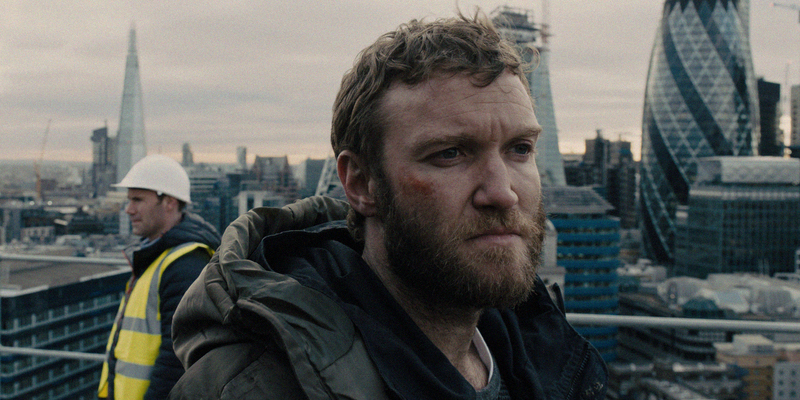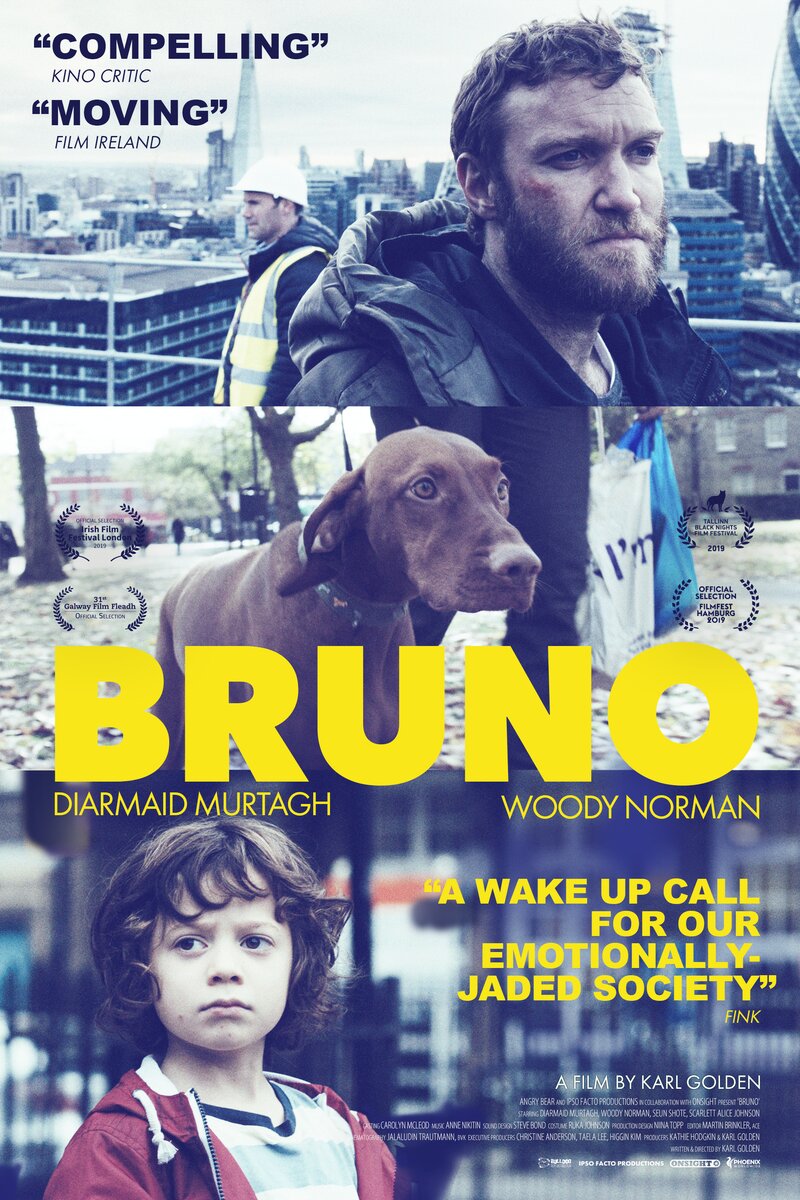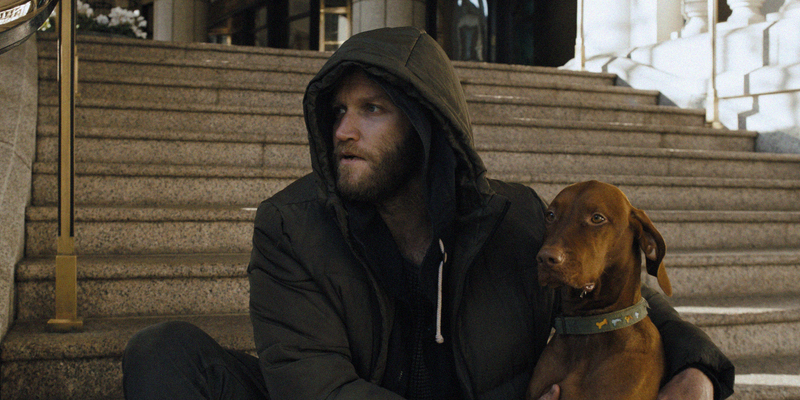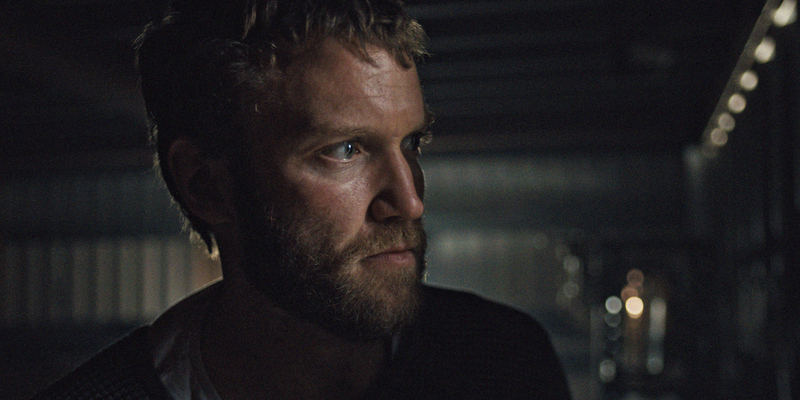
Review by
Benjamin Poole
Directed by: Karl Golden
Starring: Diarmaid Murtagh, Woody Norman, Seun Shote, Scarlett Alice Johnson

In the opening moments of Bruno, writer/director Karl Golden’s social realist drama, a homeless
man (Daniel, played by Diarmaid Murtagh) stares at a playground and
the children within. The rough vagrant has a wistful, but intense look on
his face. The tableau eventually turns out to be innocent, but it is,
however, a typical example of down-and-out Daniel’s manifest first act
faux pas (homeless or not, a lone man gawping at a playground is inviting
dubiety).

In these callow first scenes, Daniel seems new to the streets, a drifter
with no place to doss, and whose lack of survival skills lead to him
confronting dem yute who one night are busy wrecking the very playground
which provides Daniel with such lachrymose daytime entertainment: he gets
stabbed for his troubles. At least he has his dog, the titular Bruno, to
keep him company through the worst of it. Oh wait, no. Bruno ran off
during the beat down, pulling the narrative trigger! Bruno, come home!
Problem is, of course, that Bruno can’t come home due to Daniel’s no fixed
abode. Thus, freshly released from A&E, Daniel is once again pounding
the streets of London - this time with the renewed purpose of searching
for his lost dog. Returning to his beloved playpark in the small hours,
however, he finds not his absent canine but a seven-year-old kid who has
bedded down for the night in a plastic play tunnel (Izzy -
Woody Norman). Izzy gloms on to Daniel, who in turn is
not-pleased-but-actually-secretly-chuffed by the arrangement. Why else
doesn’t he immediately try to resolve the situation and return Izzy home?
Maybe Izzy reminds him of someone...

Daniel makes a cursory stop at social services who tell him forcefully to
‘return at seven o clock’, which he doesn’t do, instead electing to take
Izzy for a fry up at some greasy spoon (the portrayal of the soc’ is the
first indicator of Bruno’s propensity for institutions and people to behave in ways which serve
the narrative, rather than convince). Izzy is very precious about his
breakfast: he doesn’t like mushrooms, much less eggs. Just sausages. It’s
an early indicator that this kid doesn’t seem to come from deprivation,
which in itself begats a plot hole: why isn’t anyone out looking for this
white middle class cherub?
As someone who adores all dogs (even the ugly ones), and lives in a state
of constant anxiety over anything happening to the ones in my family, a
problem I had with Bruno’s plot was that it was unlikely that Izzy would not eventually be
reunited with his family, whereas the fate of Bruno was far more
ambiguous, and a narrative drive which the film doesn’t pursue as doggedly
(sorry) as the developing relationship between Daniel and Izzy. This is
however superbly performed, with the two actors generating an edgy,
beguiling chemistry which is exceedingly watchable. Until, perhaps
unsurprisingly, just like when he lost his dog, Izzy goes missing from
Daniel, too!

While it is refreshing to watch a film about a social ill which doesn’t
bang you about the head with messages and ideology, there is something
strangely fable-like about Daniel which I’m not sure coalesces
narratively. In a film which trades in characterisation, aside from our
leads other characters are undeveloped. Other homeless people are simply
violent drunks while institutions are automatically unhelpful (in one
contrivance, Daniel enlists a mate to help him locate Izzy - the fella
canvasses the infamous playpark, where the resident gang stab him up for
no reason other than that’s what the archetypes of Bruno do:
cause further conflict). In the end, there is also the curiously
reactionary sense that all Daniel needed was a shower and the kindness of
a nice-looking lady to pull himself up by his bootstraps. Still, the
film’s eagerness, naïve charm and championing of kindness makes Bruno a
shaggy dog story which may well win you over.

Bruno is on Prime Video UK now.
